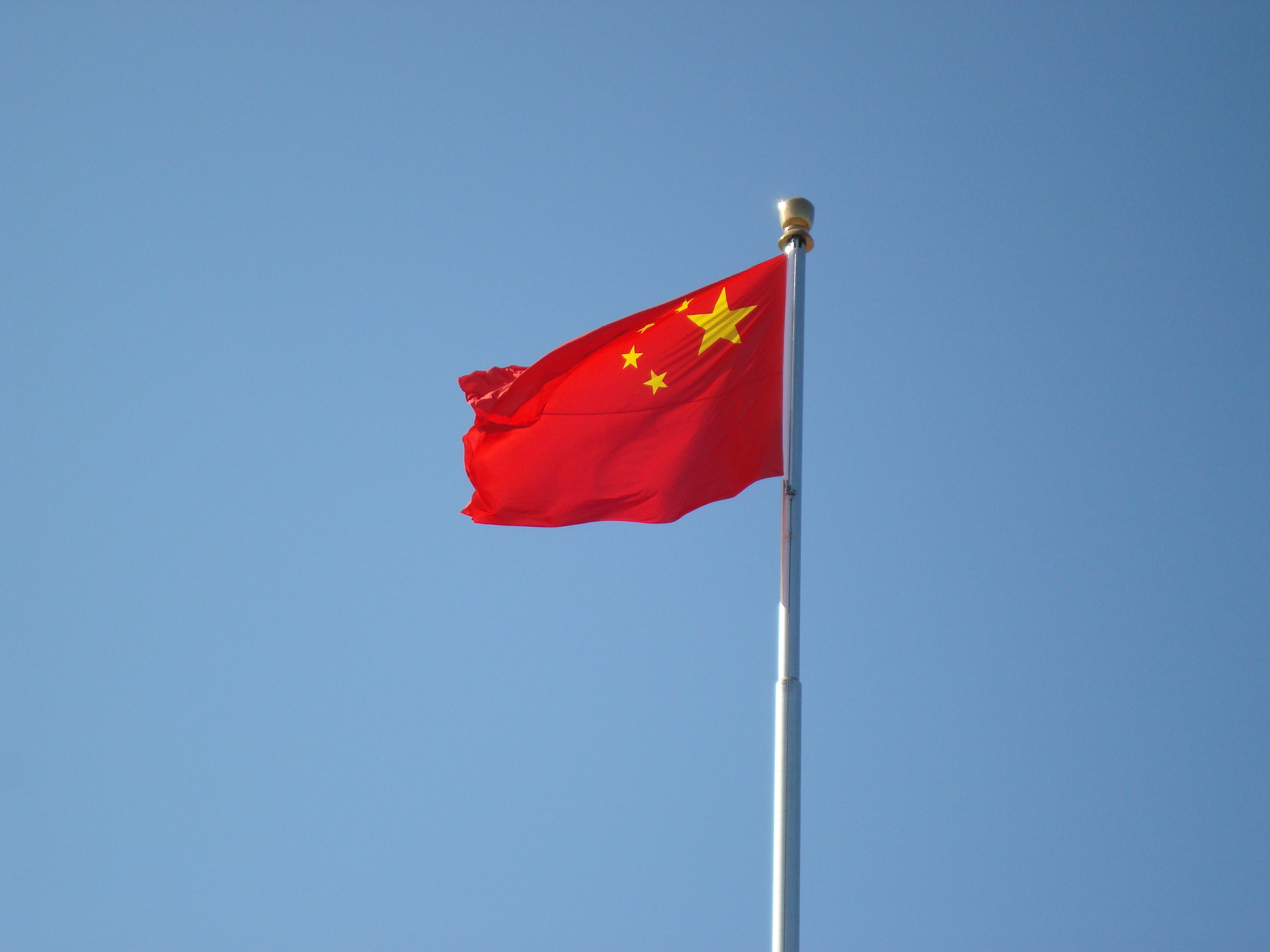China Is Making Smart Money
China’s fintech activity is evolving swiftly and the U.S. government needs to thwart this long-term threat by ensuring that the companies exploring new technical capabilities in the financial sector have an alternative to Chinese innovation.

Published by The Lawfare Institute
in Cooperation With

While U.S. financial policymakers are only beginning to study and debate the possibility of creating a digital dollar, China is amidst a national blitz to digitize its entire economy. For several years, the digitization of the economy has been mostly a Chinese Communist Party (CCP) talking point reserved for state planning documents. Now it is becoming a reality. In July, China’s central bank, the People’s Bank of China (PBOC), published a 15-page white paper outlining its progress in developing the nation’s central bank digital currency, known as the “eCNY” or digital renminbi. The white paper offers the first official details of China’s groundbreaking effort to digitize its currency, confirming much of what we assessed in a Center for a New American Security research paper in January 2021. But what is most revealing on the ground in China is how the CCP is piloting new financial technology (fintech) throughout the massive Chinese economy. Chinese financial and tech firms are innovating—building new applications on top of the government’s eCNY architecture to make faster and more dynamic financial transactions. Taking its cue from the CCP’s national fintech strategy, the private sector is working to make Chinese money smarter. This may mostly be a domestic affair, but it is likely to carry into foreign policy as China pushes the rest of the world to follow its technological path. China’s fintech focus is a geopolitical move, in a race where the nation with the best data wins. And if the global digital economy evolves to rely more on China’s technological innovation, it will give the CCP much more bargaining power in international affairs.
As a U.S. national security matter, China’s progress in the digital renminbi is more about China’s ambition to harness data than it is about advancing its currency. While U.S. policy discussions around technology and data tend to focus pointedly on the issue of privacy protection, the CCP sees data as critical national infrastructure. Chinese President Xi Jinping has called data “a new factor of production, a basic and strategic resource … necessary to build a digital economy.” Xi spoke these words at a Politburo meeting on “Implementing a National Data Strategy” back in 2017. For China, data is not the new oil—it’s the new electricity. The CCP is channeling domestic policy through controlling data. The Chinese government aims for data to power the infrastructure and applications that govern daily life—and for the state to control that data for political and economic ends. Although some U.S. policymakers do realize that China’s data innovation could threaten U.S. competitiveness, the U.S. has not articulated any vision for what U.S. competitiveness in a data-based economy should look like. Meanwhile, the digital renminbi project is China’s national data strategy in action.
Although a digital renminbi cannot compete directly with the stable and more globally attractive U.S. dollar in the short term, the functionality of this new system of Chinese digital money could propel Chinese-led innovation within the global financial system. China’s long-range economic strategy includes gaining a foothold in emerging technologies that no country—even the U.S.—is dominating. With China ramping up its fintech pilots while it is simultaneously gaining more influence in shaping international discourse, China could decide on the parameters of new global financial practices and see its own technologies adopted internationally. This would make Chinese fintech more important to global commerce and, thus, give the Chinese government greater international leverage. China’s fintech activity is evolving swiftly. The only way for the U.S. government to thwart this long-term threat is to act immediately to ensure that Chinese innovation is not the only game in town as companies around the world explore new technical capabilities in the financial sector.
The Chinese market has had digital and mobile payments for years, but a digital renminbi is a markedly different development. It allows users to directly hold a digital asset issued by the central bank and transferable between different banking and payment platforms. In the U.S., it would be akin to using your Venmo account to send dollars to your friend’s CashApp or PayPal or Zelle account, something not currently possible.
The eCNY is still in the pilot stage, but the pilot has advanced to a product design and implementation strategy for China’s entire financial sector. Earlier this year, the CCP was giving randomly selected citizens small amounts of free eCNY to spend with merchants online or via smartphone wallets in pilot disbursals facilitated through a handful of state-owned banks in a few large cities. Now, dozens of smaller city and rural banks, as well as payment companies are setting up pilots to support eCNY use. These smaller institutions have less capital and technical infrastructure to operate on behalf of the central bank, but their customers tend to be the small and medium-sized enterprises and everyday people that the PBOC wants to adopt the new digital currency. As of late June, roughly 21 million people and 4 million businesses had eCNY wallets, and they had conducted around 71 million transactions totaling $5.3 billion worth of digital renminbi. The numbers are small relative to the entire economy, but they represent a volume of retail transactions unseen by any other national digital currency project. Most countries exploring ways to digitize their currency are thus far only producing research and concept papers while China has real-world data to study from millions of businesses to individual consumers.
The eCNY pilot is expanding to support practical daily payment needs. For example, more than 100 gas stations in Shanghai are now accepting digital renminbi. Other municipalities are offering similar services. Shanghai’s oldest and largest taxi company has installed eCNY software on 6,000 alternative energy-powered cars. Sichuan province is experimenting with paying out housing subsidies in digital renminbi. Multiple cities are integrating eCNY payment trials into their public transportation systems, allowing riders to buy subway and bus fare via eCNY apps. Some of the transportation pilots are taking advantage of the eCNY’s programmability, where the eCNY can be used only for specific transportation payments, something not currently possible with conventional digital transactions.
Chinese tech giant Huawei recently secured a payment-service license and is adding a digital renminbi wallet system into one of its mobile phone models. A Chinese payment software company is building digital renminbi interfaces for supermarket chains and plans to launch a wearable bracelet to enable hand-to-hand eCNY transactions. One bank is developing a variety of hardware wallets so that people can spend their digital funds without any internet connection. Another large bank has even produced love-themed hardware eCNY wallets for newlyweds, supporting China’s policy aim to increase the country’s marriage and birth rates. The Agricultural Bank of China recently unveiled a digital renminbi innovation unit, which is researching ways to integrate digital currency with farming projects. And state-owned and private Chinese firms have filed 271 patents relating to digital renminbi since 2020. The CCP is not just doling out digital renminbi to citizens. It is overseeing a growing digital renminbi ecosystem.
The eCNY’s programmability is likely to be its most important innovation. It will support smarter business-to-business transactions. For example, a Chinese financial news site described how Chinese steel manufacturer Baowu is planning to use the eCNY to enhance its logistics operation. The firm would pay its logistics carrier in digital renminbi to move freight, and then subpayments out of those digital renminbi funds would be processed to the truck driver and storage facilities. The Chinese press reporting is vague about the intricacies behind these eCNY-based transactions, but at each step, the payment would be verified for taxation purposes. It is unclear if the process would automatically report the data to tax authorities, but given the CCP’s aim to develop a national government database of digital transactions, it seems likely this information would go directly to the government.
Other Chinese government agencies are cultivating the digital renminbi ecosystem. In April 2021, key government agencies supervising internet regulation, industry competitiveness, and economic management jointly hosted the fourth Digital China Summit. Representatives at this exhibition promoted eCNY’s offline point-to-point functionality, where users can transact without an internet connection through mobile phone hardware wallets. The focus on offline spending ostensibly aims to extend financial services to China’s unbanked population, especially in rural areas with less internet access. But it has another side to it. As more people use eCNY, the Chinese government could then gather and analyze the financial activities of a much larger portion of its populace. This innovation will strengthen the CCP’s digital authoritarianism.
This all-of-Chinese-society domestic effort to develop the eCNY ecosystem is laying a foundation on which China can steer its international commerce onto new rails—financial platforms that are less influenced by the United States. In late 2020, Baowu also developed a blockchain-based trade finance platform that allows businesses to make cross-border payments via letters of credit. It would seem logical for the eCNY to eventually be integrated into this platform. Letters of credit are used to hold parties accountable at either side of a transaction so that payments take place as long as certain conditions are met. These instruments are issued and enforced by banks, but an eCNY-based letter of credit running on a Chinese trade finance platform would likely complicate traditional bank processes. Not only would the platform itself be Chinese run, but data involving the eCNY transactions would be fed directly to the Chinese government. These letters-of-credit arrangements might not be subject to U.S. sanctions checks in the way that conventional letters of credit are through current bank processes. If China convinces trading partners more broadly to use such Chinese-controlled trade finance platforms, integrated with the eCNY, it could decrease the need for those partners to rely on the dollar to settle and clear cross-border transactions.
While PBOC officials currently emphasize the eCNY’s domestic use, it would be naive for the rest of the world to dismiss its international relevance in the long run. The same state-owned bank that created a trade finance platform with Baowu also signed a strategic cooperation agreement with Australian payment processor Airwallex, potentially opening room for future integration of the eCNY. And a Chinese mobile payment news outlet recently reported that three foreign banks were awaiting approvals to connect to the eCNY clearing system. The report did not specify which banks.
Should the U.S. government and private sector be worried about these particular technology advancements given that Chinese firms for years have been more innovative in mobile and digital payments than their U.S. counterparts? Some observers point out that while innovative Chinese payment platforms have boomed in China, they have struggled for international adoption.
However, the difference between previous Chinese fintech development and what is occurring now is that the Chinese government did not have easy and all-encompassing access to the data generated by private-sector financial innovation. But the CCP is trying to rectify that situation, as it passed three new data-focused laws this year that—combined with its broad mandate to determine national security threats—could force tech firms to give the government direct access to customer-generated data. The digital renminbi is the CCP’s play to collect every bit of financial data to aggregate it, analyze it, and leverage it to build a stronger economic and political apparatus. The aim is for smarter money to make a more “intelligent” state, a more powerful CCP. And in an environment in which 86 percent of the world’s central banks are considering whether to build central bank digital currencies (CBDCs) of their own, China is positioning itself to lead global CBDC standards. In March, the PBOC proposed a framework for international CBDC interoperability at a meeting at the Bank for International Settlements, a standard-setting body for the world’s central banks. China’s proposal stressed that CBDC “information flows and fund flows should be synchronized so as to facilitate regulators to monitor the funds for compliance.” How this data would be synchronized is not spelled out, but China is positioning itself to take advantage of whatever data would come across this system while the United States appears to have no stance on how to approach CBDC information-sharing.
As the world’s economy gets more digitized, the nations that can innovate with data are likely to gain an edge in global economic competition. Just as the ability to build industry off of a state’s natural resources may be more strategically relevant than simply having those resources, leveraging data is more critical than simply generating data. The CCP understands this economic calculus. It is likely to transfer insights from the foreign and domestic data it acquires over to Chinese firms in order to give them competitive advantages.
How should the U.S. government respond to China’s fintech strides and ambition? First, the U.S. needs to frame financial technology as a national security concern. Defensively, the U.S. government could borrow elements from the executive order that bans American investment into Chinese surveillance technology, and consider reviewing American investments into Chinese technology that could further illiberal projects, such as China’s Blockchain-Based Service Network (BSN), which aims to build a CCP-controlled internet. Second, U.S. entities like the Federal Reserve and the Treasury Department need to assert leadership on CBDC discourse at international bodies like the Bank for International Settlements to prevent CBDC development from morphing into a system where China collects and exploits foreign financial data.
At the same time, U.S. policymakers need to undertake an offensive approach by framing domestic fintech advancement as an economic priority. Big data analysis and artificial intelligence are now part of international finance, and will only become more indispensable over time. The United States will need to become more of a financial data innovator, but must ground that innovation in U.S. values and democratic principles. The U.S. should propose a framework for how to promote CBDC innovation that also protects privacy. With most countries exploring ways to digitize their economies, the U.S. should lead by example in developing technological and policy standards that bolster economic innovation and prosperity without promoting authoritarianism. Otherwise, the world may evolve into a digital economy with Chinese Communist Party characteristics.






